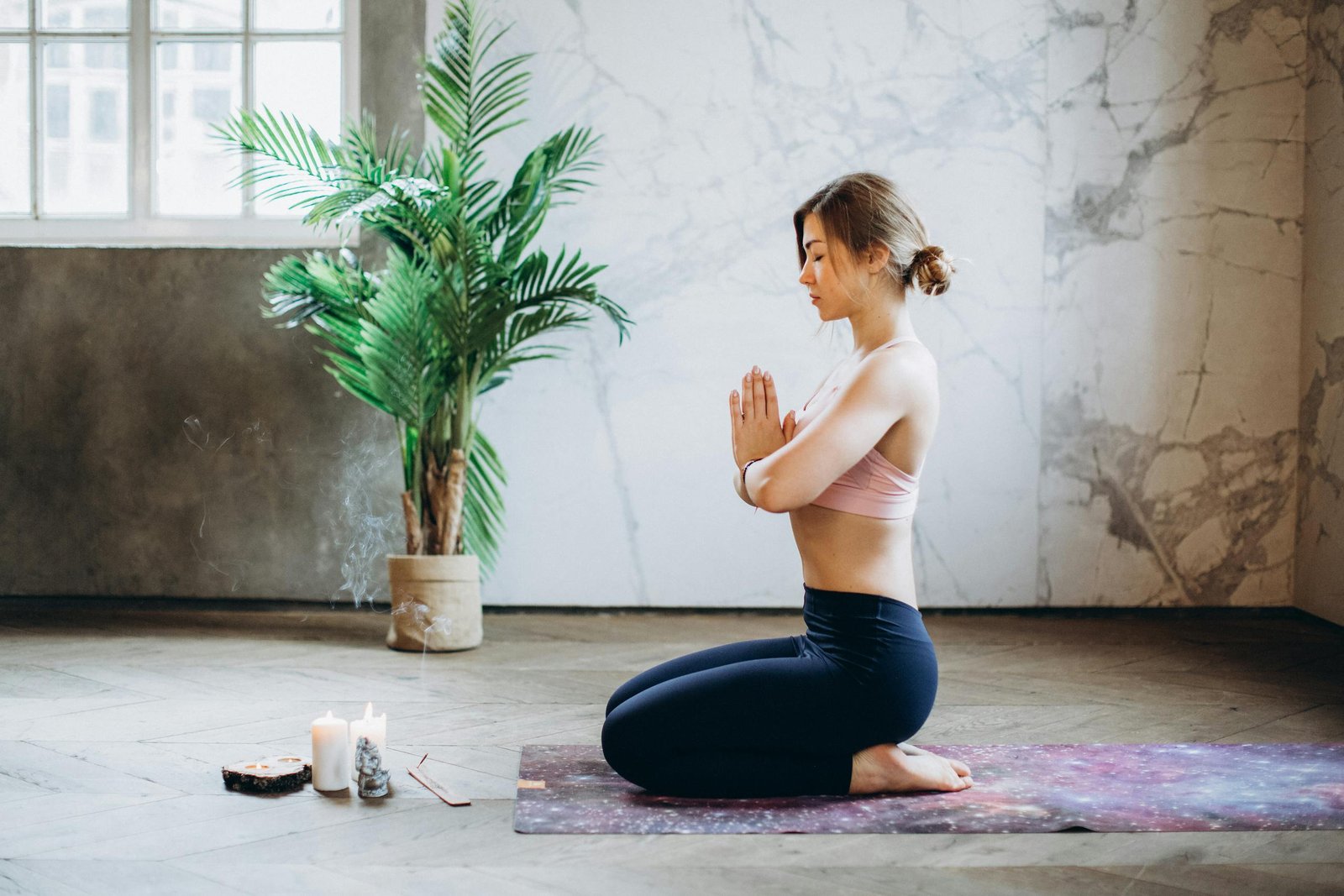
Managing Anxiety and Stress: Effective Daily Strategies
In today’s fast world, anxiety and stress are common. They can really affect our daily lives and mental health. It’s key to learn how to handle these feelings well.
By using stress-reducing methods like mindfulness, therapy, exercise, and healthy eating, we can manage anxiety better. These practices help us deal with stress every day.
Being proactive about managing anxiety and stress can make life better. It boosts our resilience and helps us feel calmer. This article will share easy ways to reduce anxiety and stress in our daily lives.
Key Takeaways
- Recognize the symptoms of anxiety and stress and their impact on mental and physical health
- Practice mindfulness meditation for effective stress management and anxiety relief
- Develop a regular exercise routine and maintain a healthy, balanced diet to reduce stress levels
- Utilize cognitive behavioral therapy techniques to identify and challenge negative thought patterns
- Incorporate relaxation techniques into daily life to promote a sense of calm and balance
Understanding the Impact of Anxiety and Stress
Anxiety and stress are common and can affect our well-being. While some stress is normal, too much can harm our mental and physical health. It’s important to know the signs of anxiety and stress and how they impact our lives.
Recognizing the Symptoms of Anxiety and Stress
Everyone shows anxiety and stress differently. Some common signs include:
- Persistent feelings of worry, nervousness, or unease
- Difficulty concentrating or focusing on tasks
- Restlessness or irritability
- Muscle tension, headaches, or other physical discomforts
- Sleep disturbances, such as insomnia or excessive sleeping
- Changes in appetite or eating habits
- Rapid heartbeat or sweating
Spotting these symptoms early is key to managing anxiety and stress. By recognizing them, we can take steps to protect our mental health and avoid negative effects.
How Anxiety and Stress Affect Mental and Physical Health
Long-term anxiety and stress can harm both our mental and physical health. If not managed, they can lead to mental health disorders like:
- Depression
- Panic disorders
- Generalized anxiety disorder
- Post-traumatic stress disorder (PTSD)
- Obsessive-compulsive disorder (OCD)
Stress and anxiety can also affect our physical health. They can lead to issues such as:
| System | Potential Health Consequences |
|---|---|
| Cardiovascular | Increased risk of heart disease, high blood pressure, and stroke |
| Immune | Weakened immune function, making individuals more susceptible to illnesses |
| Digestive | Digestive issues such as irritable bowel syndrome (IBS), ulcers, and acid reflux |
| Musculoskeletal | Chronic muscle tension, headaches, and pain |
| Reproductive | Hormonal imbalances, menstrual irregularities, and fertility issues |
The effects of anxiety and stress on the body should not be underestimated. Over time, chronic stress can lead to serious health problems.
Knowing how anxiety and stress can harm our mental and physical health is crucial. By understanding these risks, we can focus on our well-being and find ways to manage these conditions.
Mindfulness Meditation for Anxiety and Stress Relief
In today’s fast-paced world, many struggle with anxiety and stress. Mindfulness practices offer a powerful solution. Mindfulness meditation is especially effective in reducing stress and improving well-being.
Mindfulness meditation focuses on the present moment. It involves observing thoughts and emotions without judgment. Regular practice helps develop awareness and resilience.
Studies show mindfulness meditation reduces anxiety and stress symptoms. It improves emotional regulation and self-awareness. It also helps maintain a positive outlook on life.
“Mindfulness is a way of befriending ourselves and our experience.” – Jon Kabat-Zinn
Starting mindfulness meditation is simple. Here are a few tips:
- Find a quiet and comfortable space.
- Close your eyes and focus on your breath.
- When your mind wanders, gently redirect your focus back to your breath.
- Start with short sessions of 5-10 minutes and gradually increase the duration as you become more comfortable with the practice.
Consistency is key for mindfulness meditation benefits. By making meditation a daily habit, you can cultivate inner peace and resilience. This empowers you to navigate life’s challenges with ease and clarity.
| Mindfulness Meditation Technique | Benefits |
|---|---|
| Focused Attention Meditation | Improves concentration and reduces mind wandering |
| Body Scan Meditation | Promotes relaxation and reduces physical tension |
| Loving-Kindness Meditation | Cultivates compassion and positive emotions |
| Mindful Breathing Meditation | Calms the mind and reduces stress and anxiety |
Exploring different mindfulness meditation techniques can help you find what works best for you. Whether you’re looking to reduce stress, improve focus, or enhance emotional well-being, mindfulness meditation is a powerful tool.
Effective Ways to Manage Anxiety and Stress in Everyday Life
In today’s fast world, managing anxiety and stress is key. Simple lifestyle changes can greatly reduce these challenges. Let’s look at some easy ways to handle anxiety and stress every day.
Developing a Regular Exercise Routine
Regular exercise is a top way to fight stress and anxiety. It releases endorphins, which boost our mood and calm us down. Try activities like walking, yoga, or swimming for 30 minutes daily to feel better.
Maintaining a Healthy and Balanced Diet
What we eat affects our mental health and stress levels. Eating a balanced diet with stress-reducing foods helps. Include foods like fruits, vegetables, whole grains, lean proteins, and healthy fats in your meals.
Also, cut down on caffeine, alcohol, and processed foods. These can make anxiety worse. Eating well helps you handle stress better.
Prioritizing Quality Sleep for Stress Management
Sleep and stress are closely linked. Not enough sleep can make anxiety worse. Aim for 7-9 hours of sleep each night and stick to a schedule.
Make a relaxing bedtime routine to get ready for sleep. This could be taking a warm bath, reading, or deep breathing exercises. These activities help you relax and prepare for a good night’s sleep.
| Bedtime Routine Activity | Benefits |
|---|---|
| Taking a warm bath | Promotes relaxation and reduces muscle tension |
| Reading a book | Helps calm the mind and provides a distraction from stress |
| Practicing deep breathing exercises | Induces a state of relaxation and reduces anxiety |
| Listening to soothing music | Creates a peaceful atmosphere and promotes emotional well-being |
By focusing on quality sleep and a calming bedtime routine, you can manage stress better. This improves your resilience to daily stressors.
“The greatest weapon against stress is our ability to choose one thought over another.” – William James
Regular exercise, a balanced diet, and quality sleep form a strong base for managing anxiety and stress. Small changes can greatly improve your mental health and help you face life’s challenges more easily.
Cognitive Behavioral Therapy Techniques for Managing Anxiety
Cognitive behavioral therapy (CBT) is a top choice for tackling anxiety and stress. It helps people spot and change negative thoughts that lead to anxiety. This way, they learn to cope better and feel mentally stronger.
Identifying and Challenging Negative Thought Patterns
CBT focuses on spotting and tackling negative thoughts that cause anxiety. These thoughts often make things seem worse than they are. CBT helps people see these thoughts for what they are and question them.
Challenging these thoughts means looking at the facts, finding other ways to see things, and thinking more realistically. This helps break the cycle of negative thinking and lowers anxiety and stress.

Reframing Thoughts to Reduce Anxiety and Stress
Thought reframing is a key CBT technique for managing anxiety. It’s about seeing things in a more positive way and finding less stressful interpretations. This helps people feel less overwhelmed and more hopeful.
For instance, instead of thinking “I can’t handle this,” one might think “This is tough, but I can get through it.” Changing thoughts in a positive way helps people feel more confident and calm when faced with stress.
Cognitive behavioral therapy is not about thinking positively all the time. It’s about thinking realistically and adaptively, even in the face of challenging situations.
CBT also teaches practical skills for dealing with anxiety. These include:
- Deep breathing exercises
- Progressive muscle relaxation
- Mindfulness meditation
- Assertiveness training
- Problem-solving strategies
Using these skills daily helps people manage stress and stay emotionally balanced. CBT gives a wide range of tools to handle anxiety, empowering people to control their thoughts and feelings. This leads to a more fulfilling life.
Incorporating Relaxation Techniques into Daily Life
In today’s fast-paced world, it’s key to add relaxation exercises to our daily routines. This helps manage stress and anxiety. By spending a few minutes each day on deep breathing, progressive muscle relaxation, or other stress relief activities, we can find calm and balance.
Deep breathing is a simple yet powerful technique. It involves slow, deep breaths from the diaphragm. This activates the body’s natural relaxation response. It reduces muscle tension, lowers heart rate, and brings tranquility.
To start, find a quiet, comfortable spot. Take a few minutes to breathe deeply. Focus on the breath moving in and out of your body.
Progressive muscle relaxation is another effective exercise. It involves tensing and relaxing different muscle groups. This helps release physical tension and promotes relaxation. Here’s how to practice it:
- Find a comfortable position, either sitting or lying down.
- Start by tensing the muscles in your feet for 5-10 seconds, then release the tension and focus on the feeling of relaxation for 10-15 seconds.
- Work your way up the body, tensing and relaxing muscle groups in the legs, hips, abdomen, chest, arms, hands, neck, and face.
- Take deep breaths throughout the exercise, noticing the contrast between tension and relaxation.
“Relaxation techniques are like a reset button for your mind and body. They help you to break free from the cycle of stress and anxiety, and find a sense of inner calm and balance.” – Dr. Sarah Johnson, Psychologist
Adding these relaxation exercises to your daily life can greatly improve your well-being. Try setting aside time each day for relaxation. This could be:
- Taking short breaks throughout the day to practice deep breathing
- Practicing progressive muscle relaxation before bed to promote better sleep
- Engaging in stress relief activities like yoga, tai chi, or mindfulness meditation
By making relaxation a priority and integrating these techniques into your daily routine, you can build resilience against stress and anxiety. This improves your mental and physical health. It also brings a greater sense of peace and balance to your life.
Conclusion
Managing anxiety and stress is key to our mental and physical health. By knowing the signs and how they affect us, we can start to manage them better. Techniques like mindfulness, exercise, and a healthy diet help a lot.
Adding these habits to our daily life takes time and effort. But with patience and a focus on mental health, we can overcome challenges. This way, we can find peace and balance in our lives.
Don’t forget, you’re not alone in this fight. Friends, professionals, or support groups can offer great help. By taking charge of your emotions and using these strategies, you can live a happier, more balanced life. Celebrate every step you take towards better mental health.
FAQ
What are some common symptoms of anxiety and stress?
How can mindfulness meditation help with anxiety and stress relief?
What lifestyle changes can help manage anxiety and stress?
How can cognitive behavioral therapy (CBT) techniques help with managing anxiety?
What relaxation techniques can be incorporated into daily life to manage stress?
How can exercise help alleviate symptoms of anxiety and stress?



